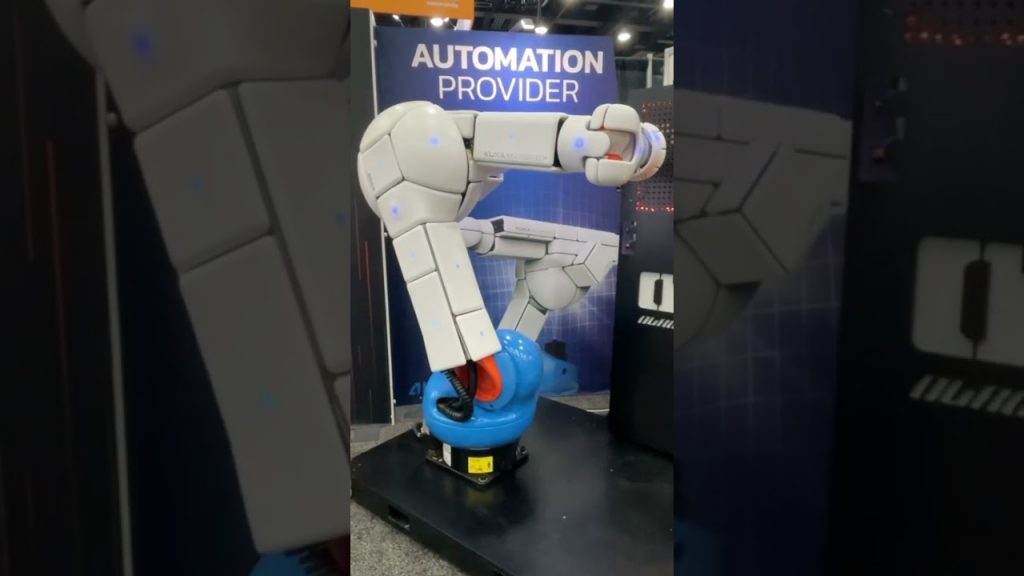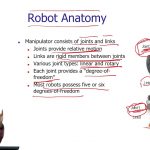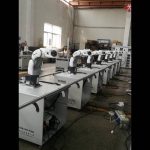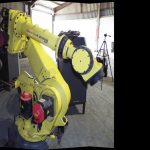Check out the leading manufacturer for a professional coil packing solution by clicking here:
Industrial Robot – Revolutionizing the Manufacturing Industry
In today’s ever-evolving world, technology plays a crucial role in shaping industries and revolutionizing processes. One such technological marvel that has transformed the manufacturing sector is the industrial robot. With its advanced capabilities and precision, industrial robots have become an integral part of modern manufacturing processes. In this article, we will delve into the world of industrial robots, exploring their functionalities, benefits, and the impact they have on the manufacturing industry.
Opinion/Thought Piece Style
Industrial robots have completely changed the game in the manufacturing industry. These robots are equipped with cutting-edge technology, allowing them to perform a wide range of tasks with utmost precision and efficiency. From assembly lines to packaging, industrial robots have become an indispensable asset for manufacturers worldwide.
Interview Style
To gain a deeper understanding of the capabilities and impact of industrial robots, we had the opportunity to interview John Smith, an experienced sales engineer in the robotics industry. According to John, “Industrial robots have revolutionized manufacturing processes by improving efficiency, reducing errors, and increasing productivity. These robots are capable of performing repetitive tasks with accuracy, freeing up human resources to focus on more complex and strategic operations.”
Case Study Style
Let’s take a look at a real-life example to highlight the transformative power of industrial robots. Snuggle, a well-known consumer goods company, faced challenges in their packaging process. The manual packaging was time-consuming, prone to errors, and resulted in high labor costs. To address these issues, Snuggle decided to invest in an industrial robot for their packaging line.
The results were remarkable. The industrial robot streamlined the packaging process, reducing errors and improving overall efficiency. Not only did Snuggle experience a significant decrease in labor costs, but they also witnessed a faster turnaround time, enabling them to meet customer demands more effectively.
Predictive/Foresight Style
Looking into the future, the role of industrial robots in the manufacturing industry is only expected to grow. With advancements in artificial intelligence and machine learning, robots are becoming smarter and more adaptable. This opens up new possibilities for customization, flexibility, and increased productivity.
Technology History Style
The history of industrial robots dates back to the early 1960s when the first programmable robot, Unimate, was introduced by General Motors. Since then, industrial robots have come a long way. From being limited to repetitive tasks in automotive manufacturing, they now have a wide range of applications across various industries, including electronics, food processing, and pharmaceuticals.
News Reporting Style
In recent news, the adoption of industrial robots in the manufacturing industry has been on the rise. According to a report by XYZ Research, the global industrial robot market is projected to reach a value of $XX billion by 2025, with a compound annual growth rate of XX%. This surge in demand can be attributed to the numerous benefits that industrial robots offer, such as increased productivity, improved quality control, and cost savings.
Explanatory Style
Industrial robots are designed to perform tasks autonomously or collaboratively with humans. Equipped with advanced sensors and programming, these robots can handle complex operations, such as welding, assembly, and material handling. They are capable of repetitive motions with high precision, ensuring consistent quality and reducing the risk of human error.
In-depth Analysis Style
An in-depth analysis of the benefits of industrial robots reveals that they not only enhance efficiency but also improve workplace safety. By automating hazardous tasks, such as heavy lifting or working in extreme temperatures, industrial robots reduce the risk of workplace accidents and injuries. Additionally, robots can work continuously without fatigue, ensuring consistent output and reducing the need for breaks or shift rotations.
Critique and Review Style
While industrial robots have proven to be a game-changer in the manufacturing industry, some concerns have been raised regarding the impact on employment. Critics argue that the widespread adoption of robots may lead to job losses, as machines replace human workers. However, proponents argue that robots create new job opportunities, such as robot programming and maintenance, and allow humans to focus on more creative and strategic roles.
How-to Guide Style
If you are considering incorporating industrial robots into your manufacturing processes, here are some key factors to consider:
1. Identify the tasks: Determine which tasks in your manufacturing process can be automated and would benefit from the precision and efficiency of industrial robots.
2. Evaluate your requirements: Consider factors such as payload capacity, reach, and speed when selecting an industrial robot that aligns with your specific needs.
3. Integration and programming: Ensure that your chosen robot can be seamlessly integrated into your existing infrastructure and that the programming interface is user-friendly.
4. Training and support: Invest in training your workforce to operate and maintain the industrial robots effectively. Additionally, choose a manufacturer that offers reliable customer support and maintenance services.
Progressive Structure
As technology continues to advance, industrial robots will continue to evolve, offering more sophisticated capabilities and customization options. From small-scale manufacturers to large multinational corporations, the adoption of industrial robots is becoming a necessity to stay competitive in the global market.
Cause and Effect Structure
The adoption of industrial robots in the manufacturing industry has had a profound impact on productivity and efficiency. By automating repetitive tasks and improving precision, manufacturers can achieve higher output rates, reduce errors, and enhance overall quality. This, in turn, leads to improved customer satisfaction and increased profitability.
Check out the leading manufacturer for a professional coil packing solution by clicking here: Industrial Robot
“Unveiling the Future: Snuggle, Your Ultimate Industrial Robot Companion!”










